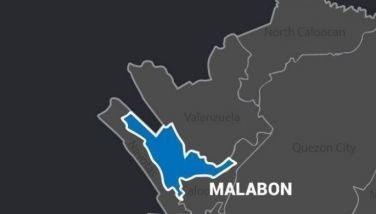Drilon sees absentee balloting in 2004
March 10, 2001 | 12:00am
Some seven million overseas Filipino workers will finally be able to vote in the 2004 presidential election.
This was the estimation of Sen. Franklin Drilon, one of the strong proponents of the granting of absentee voting rights to OFWs and other Filipinos living abroad.
By the 2004 election, he said, workable procedures and systems would have been found to conduct absentee balloting in many, if not all, of the foreign countries where Filipinos live or work.
Drilon said the inability of the last Congress to pass the bill on a absentee balloting was due to fears that the Commission on Elections and Philippine embassies and consulates abroad were not prepared to handle the task.
"There is strong support for absentee balloting in the two chambers of Congress. However, there are serious apprehensions that the government is not yet capable, technically, financially and physically, to undertake the process," said Drilon.
But he is optimistic that these hurdles would eventually be overcome. "The problems are not beyond solution. We can gain much from the experience of other developing countries that have successfully conducted absentee balloting," Drilon said in a press statement.
He suggested that Congress focus its efforts on the matter of absentee balloting immediately after the proclamation of winners in the May 14 elections.
Drilon said that if it is not immediately possible to hold absentee balloting in all countries where there are Filipinos, foreign countries with large concentrations of Filipinos should be targeted first. These places include the US, Hong Kong, Taiwan, Canada, the Middle East, Rome, Madrid, London, Vienna and Australia.
This was the estimation of Sen. Franklin Drilon, one of the strong proponents of the granting of absentee voting rights to OFWs and other Filipinos living abroad.
By the 2004 election, he said, workable procedures and systems would have been found to conduct absentee balloting in many, if not all, of the foreign countries where Filipinos live or work.
Drilon said the inability of the last Congress to pass the bill on a absentee balloting was due to fears that the Commission on Elections and Philippine embassies and consulates abroad were not prepared to handle the task.
"There is strong support for absentee balloting in the two chambers of Congress. However, there are serious apprehensions that the government is not yet capable, technically, financially and physically, to undertake the process," said Drilon.
But he is optimistic that these hurdles would eventually be overcome. "The problems are not beyond solution. We can gain much from the experience of other developing countries that have successfully conducted absentee balloting," Drilon said in a press statement.
He suggested that Congress focus its efforts on the matter of absentee balloting immediately after the proclamation of winners in the May 14 elections.
Drilon said that if it is not immediately possible to hold absentee balloting in all countries where there are Filipinos, foreign countries with large concentrations of Filipinos should be targeted first. These places include the US, Hong Kong, Taiwan, Canada, the Middle East, Rome, Madrid, London, Vienna and Australia.
BrandSpace Articles
<
>
- Latest
- Trending
Trending
Latest
Trending
Latest
Recommended































